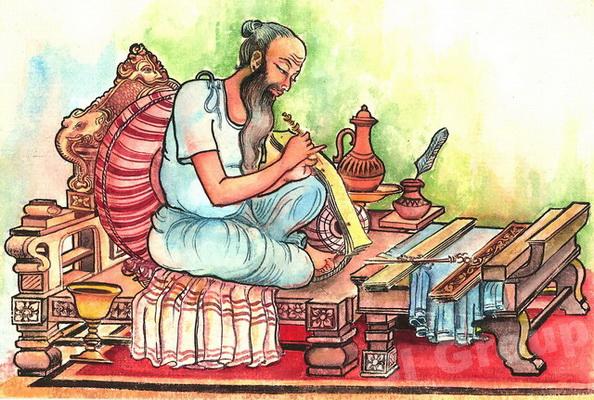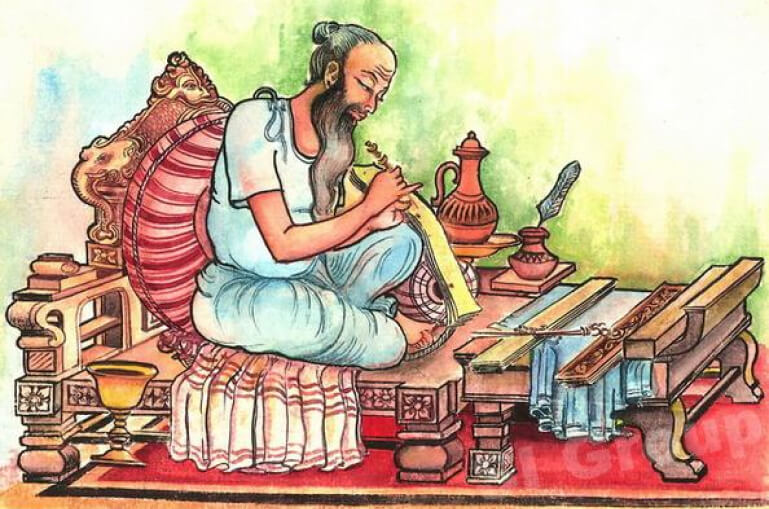National Traditional Medicine Policy of Sri Lanka
STAKEHOLDERS GROUPS

The Ayurveda Act No. 31 of 1961 provided a legal framework for indigenous medicine in Sri Lanka. However, so far, no written statement has been made directly indicating the policy direction of the government in the field of Traditional medicine and no clear statement of representation of the Traditional Medicine system in national policy can be identified.
In present scenario, it has been recognized that some issues have arisen regarding safety, effectiveness and quality when practicing Ayurveda, Siddha, Unani and Sri Lankan traditional medicine.
Therefore, policy makers have recognized that a comprehensiveTraditional Medicinepolicy is essential for the country to overcome the current challenges of service delivery and preservation within the national health stream.
Underthese circumstances,ifSri Lanka develops a Traditional Medicine policy, it is hoped that the aforementioned shortcomings will be rectified with a view to ensuring that the traditional medicine system in the countryis headed in the rightpathway. Based on this, a policyis developed to fill theidentified gaps and the Ayurvedamedical practices will gain additional legal recognition.
Accordingly, Sri Lanka has begun to draft a policy regarding traditional medicinewhichiscarried outby three committees: the Coordinating Committee, the Policy Drafting Committee, and the Steering Committee.The technical and financial support provided by variousOrganizationsincludingWHO.
In order for the workto be doneeffectively,theremust bea general policy direction for coordinating the aforementioned activities,In addition, the policy will directly help to provideuniversal health coverage to all citizens,high-quality people-centered service in primary health care (PHC) through the traditional medicine system,Apart from that,this policywilldirectlycontributes to provide excellent service through the traditional medical system by integrating health services including patient care services with the existing national health policy in the country.
I respectfully invite you to submit your comments and suggestions through the given format within 14 days to thee-mail given below
Commissioner of Ayurveda, Department of Ayurveda, Nawinna,Maharagama.
e-mail–tmpolicy02@gmail.com , 23. 11. 2022
STAKEHOLDERS GROUPS (TM) POLICY
Policy drafting committee will hope to discuss and collaborate with the following stakeholders in Sri-Lanka in coordination with the Policy coordinating committee.

Format to Collect information from Stakeholders Groups(PDF) – Download
SUPPORTIVE INFORMATION
- Service Delivery to improve health and wellbeing of people thereby socio-economic status of the population: This area covers following areas considering problems in the sector in terms of ;
-
- availability and affordability of TM &CM, with an emphasis on access for all populations.
- safety, efficacy and quality of TM & CM (by expanding the knowledge base, and providing guidance on regulatory and quality assurance
standards). - strengthen the quality assurance, safety, proper use and effectiveness of TM&CM (by regulating products, practices and practitioners/
institutions ).
-
- Managing Health Systems Resources for efficient and effective service delivery This area covers following areas considering problems in the sector in terms of ;
-
- Efficient management of human resources.
-
- education and training, skills development, services and therapies.
- education and training of TM&CM practitioners.
- research and development.
- promotion schemes /appointment process.
-
- Efficient management of Physical resources.
- Medicines and health supplies/ protect the intellectual property rights of indigenous people.
- Health administration / management system.
-
- Health Management Information System
-
- Leadership and governance.
-
- Trade unions etc.
-
- Efficient management of human resources.
-
- Partnerships/ Integration of TM & CM in national health systems
This area covers areas considering problems in the sector in terms of promoting universal health coverage by integrating TM&CM services into national health service delivery and self-health care by capitalizing on their potential contribution to improve health services and health outcomes, and by ensuring users are able to make informed choices about self-health care.
- TM & CM to develop as an industry of economic importance and enhanced contribution to GDP
This area covers following areas considering problems in the sector in terms of TM & CM sector to develop as an industry of economic importance and enhanced contribution to GDP.


